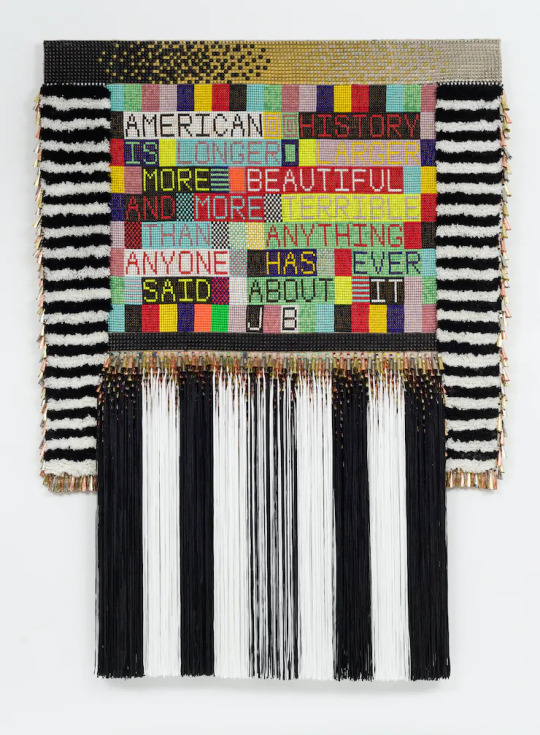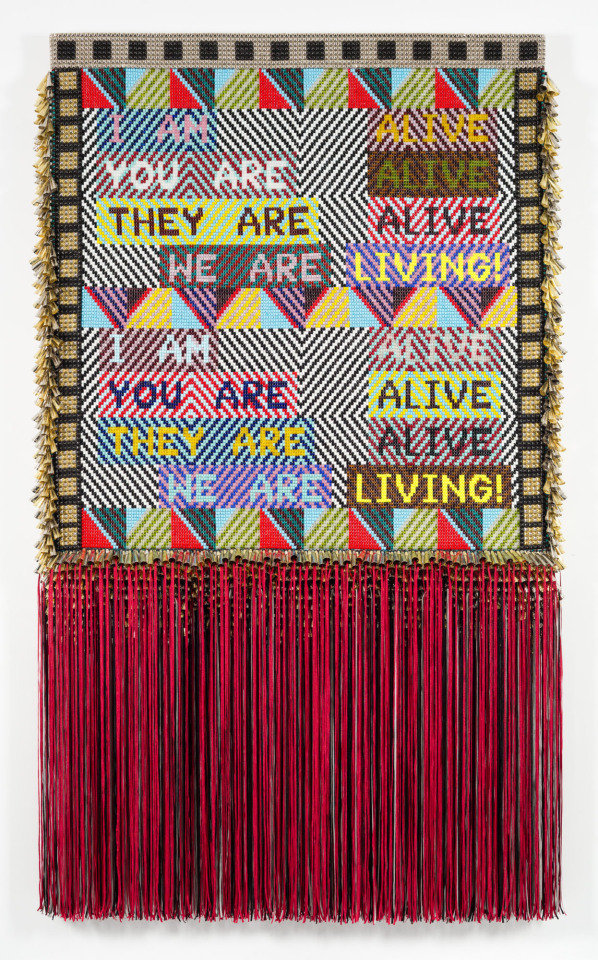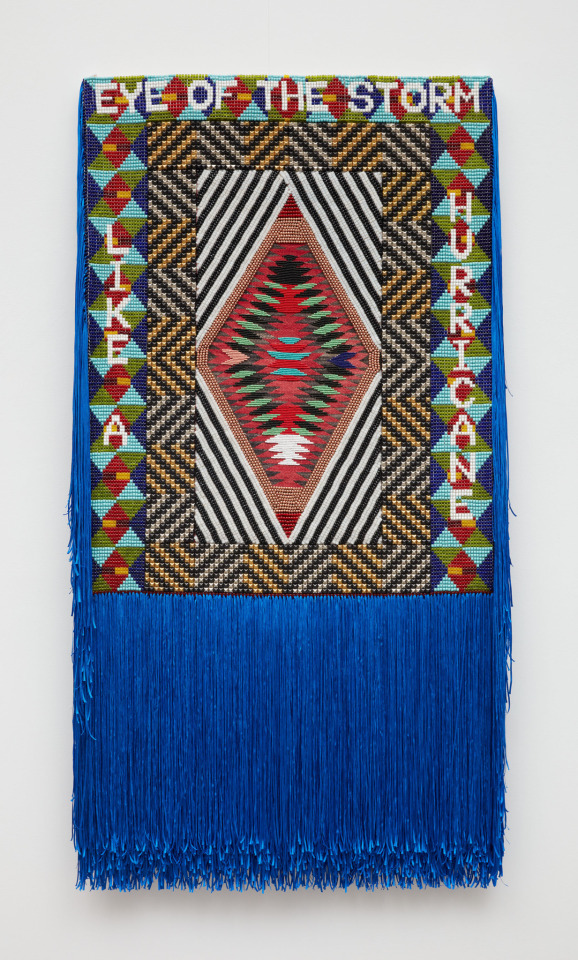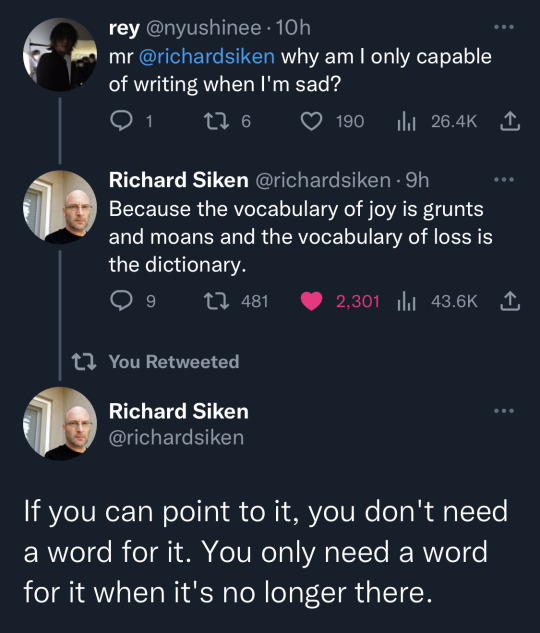Text
i need everyone to hear the story of colman domingo meeting his husband bc it's just the most beautiful thing i've ever heard
22K notes
·
View notes
Text
“she should be at the club” well i should be in the green house party paintings by salman toor


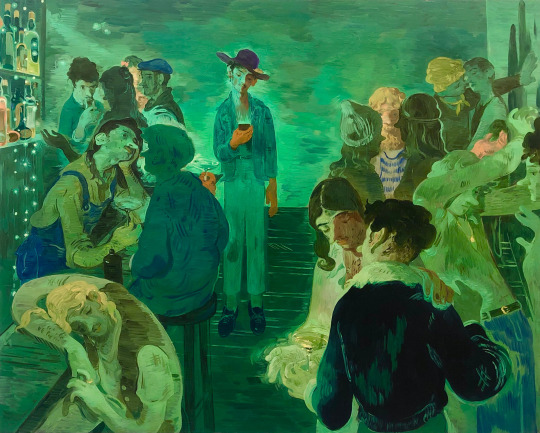


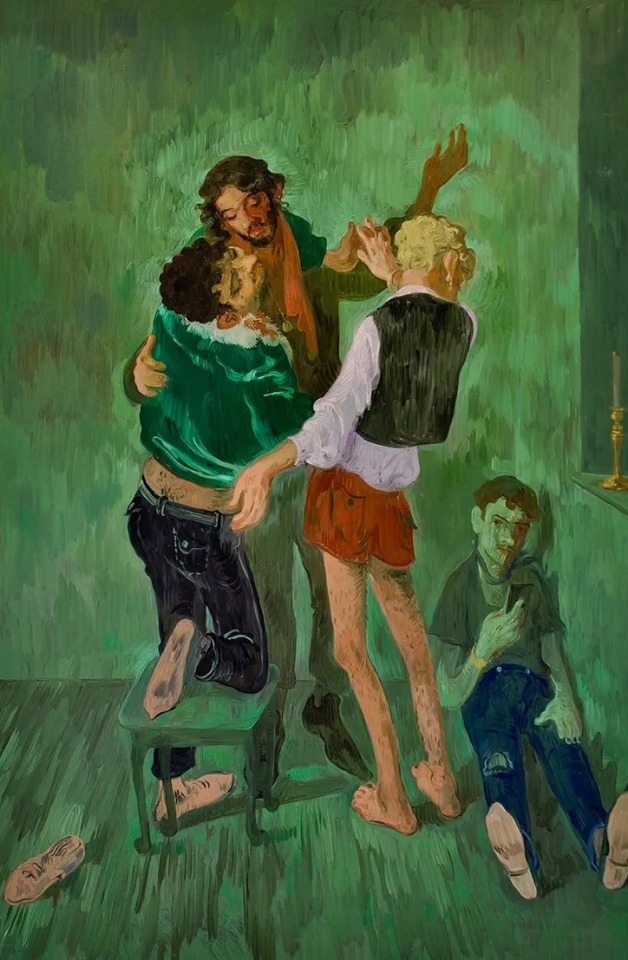
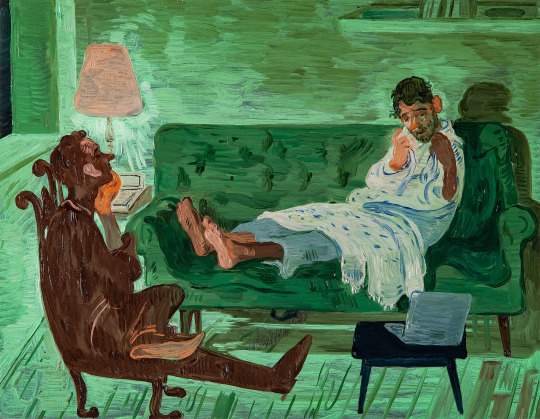

30K notes
·
View notes
Text
Works insipired by Arnold Böcklin’s “Isle of the Dead”
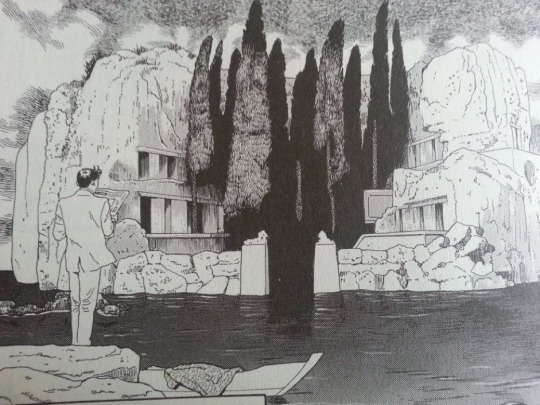
Suehiro Maruo, 2013
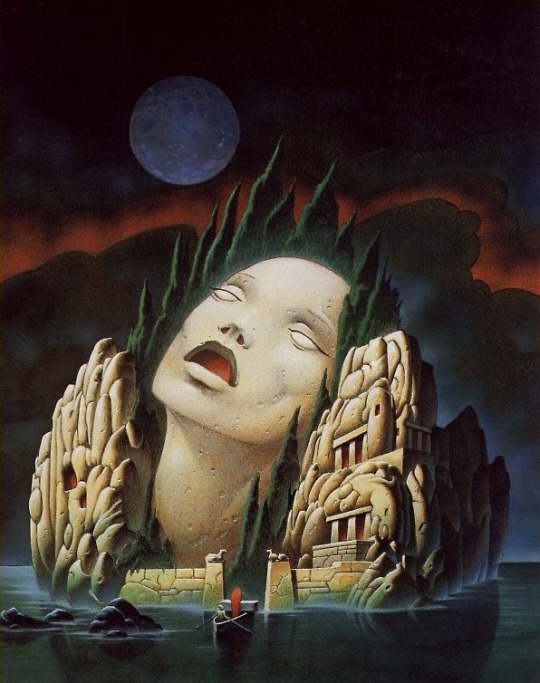
Philippe Caza, 1989
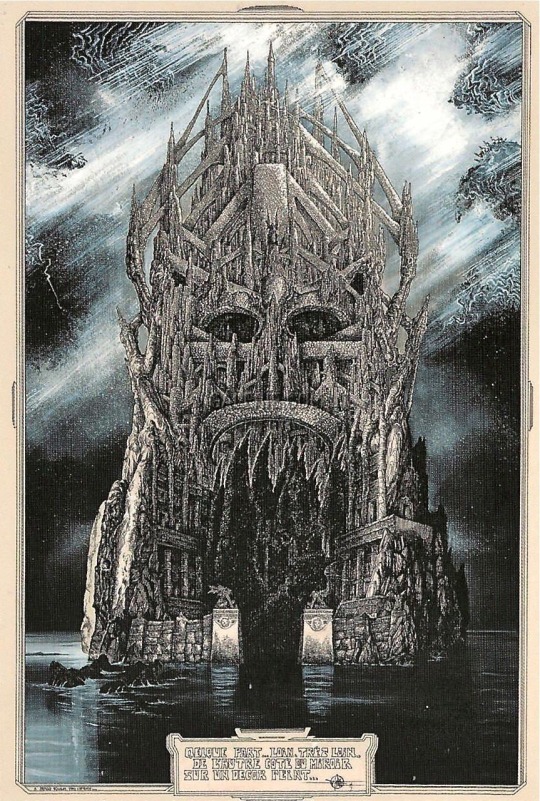
Philippe Druillet, 1976
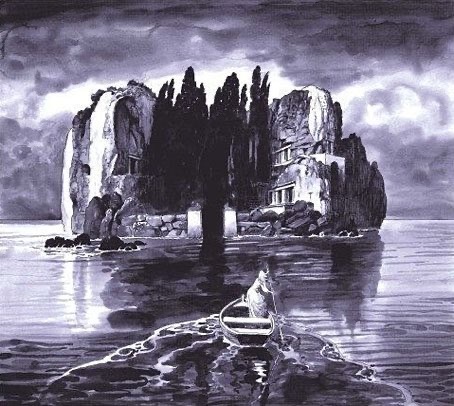
Milo Manara, 1998

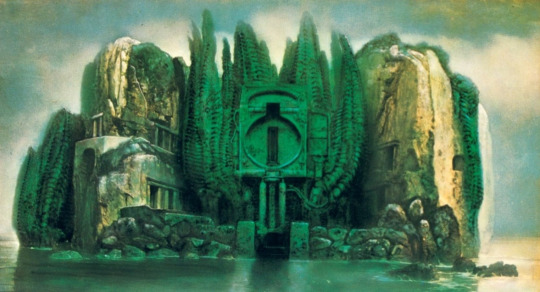
H.R. Giger, (right image from the series “Passages”) 1975
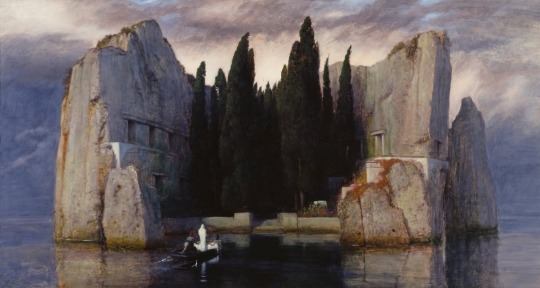
…and the original, Arnold Böcklin, 1880
4K notes
·
View notes
Photo
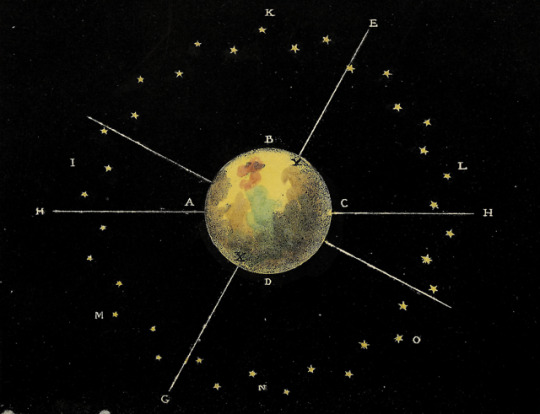
The earth in space. The beauty of the heavens. 1842.
Internet Archive
9K notes
·
View notes
Text
“reasons to not kiss him: 1. you weren’t raised to love tender. 2. when he’s around all you do is tremble. when he’s around you want to get on your knees. look how much power he has over you. it’s dangerous. 3. he’s too good at forgiving and you’re too good at violence. 4. you know what they say about monsters. you know what happens to the boys who love them. are you going to do that to him? 5. your hands don’t know how to be gentle. think about the last beautiful thing that shattered in your palms. the fresh rosebuds crumbling between your fingers like a bruise. you wolf-boy, you war machine. you wouldn’t know how to hold something magic and not destroy it. 6. if you hurt him it might kill you 7. if you hurt him you might kill yourself. 8. you are very bad at rehabilitation. this is one addiction you’d fail to give up. he’s going to ruin you for all other kisses and all other boys and you’ll spend the rest of your life trying to forget his name. 9. you still aren’t sure he isn’t a dream. 10. if you kiss him, you might wake up. reasons to kiss him: 1. because he’s beautiful. 2. because he asked. 3. because he preceded please with, i’m not afraid of you.”
—
yes & no // Natalie Wee
Find my book on Amazon / Goodreads.
26K notes
·
View notes
Photo
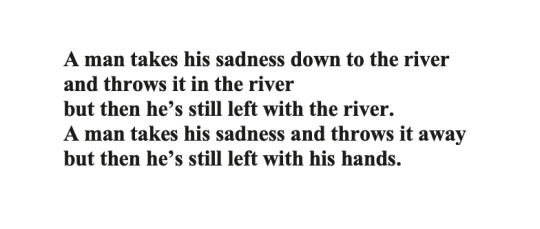
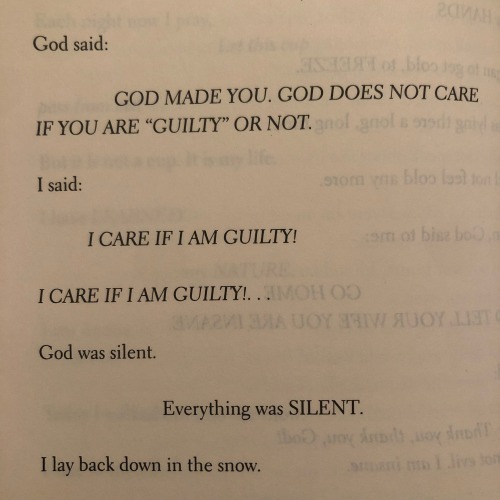
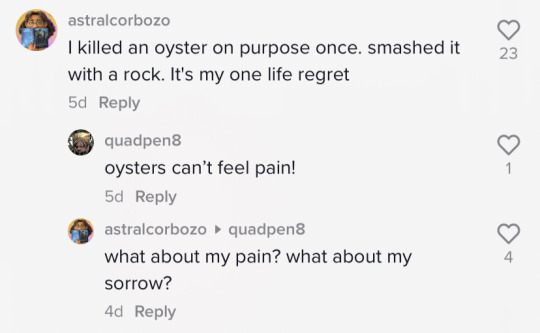
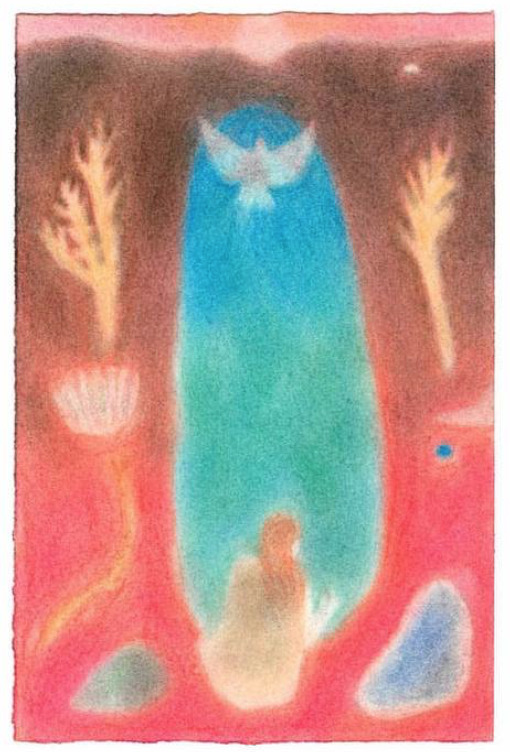

Richard Siken, Boot Theory // Frank Bidart, The War of Vaslav Nijinsky // astralcorbozo on TikTok // Mary Herbert, A Long Time in the Desert // Dan Deacon, When I Was Done Dying
45K notes
·
View notes
Text

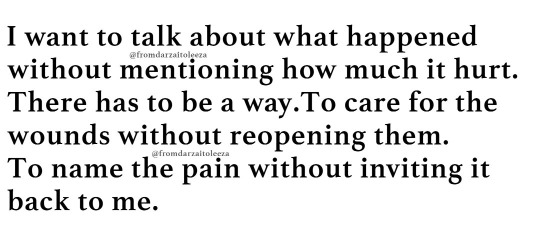
Richard Siken, Crush/Lora Mathis, If There's A Way Out I'll Take It
10K notes
·
View notes
Text

6 notes
·
View notes
Text
In the past I've shared other people's musings about the different interpretations of the myth of Orpheus and Eurydice. Namely, why Orpheus looks back at Eurydice, even though he knows it means he'll lose her forever. So many people seem to think they've found the one true explanation of the myth. But to me, the beauty of myths is that they have many possible meanings.
So I thought I would share a list of every interpretation I know, from every serious adaptation of the story and every analysis I've ever heard or read, of why Orpheus looks back.
One interpretation – advocated by Monteverdi's opera, for example – is that the backward glance represents excessive passion and a fatal lack of self-control. Orpheus loves Eurydice to such excess that he tries to defy the laws of nature by bringing her back from the dead, yet that very same passion dooms his quest fo fail, because he can't resist the temptation to look back at her.
He can also be seen as succumbing to that classic "tragic flaw" of hubris, excessive pride. Because his music and his love conquer the Underworld, it might be that he makes the mistake of thinking he's entirely above divine law, and fatally allows himself to break the one rule that Hades and Persephone set for him.
Then there are the versions where his flaw is his lack of faith, because he looks back out of doubt that Eurydice is really there. I think there are three possible interpretations of this scenario, which can each work alone or else co-exist with each other. From what I've read about Hadestown, it sounds as if it combines all three.
In one interpretation, he doubts Hades and Persephone's promise. Will they really give Eurydice back to him, or is it all a cruel trick? In this case, the message seems to be a warning to trust in the gods; if you doubt their blessings, you might lose them.
Another perspective is that he doubts Eurydice. Does she love him enough to follow him? In this case, the warning is that romantic love can't survive unless the lovers trust each other. I'm thinking of Moulin Rouge!, which is ostensibly based on the Orpheus myth, and which uses Christian's jealousy as its equivalent of Orpheus's fatal doubt and explicitly states "Where there is no trust, there is no love."
The third variation is that he doubts himself. Could his music really have the power to sway the Underworld? The message in this version would be that self-doubt can sabotage all our best efforts.
But all of the above interpretations revolve around the concept that Orpheus looks back because of a tragic flaw, which wasn't necessarily the view of Virgil, the earliest known recorder of the myth. Virgil wrote that Orpheus's backward glance was "A pardonable offense, if the spirits knew how to pardon."
In some versions, when the upper world comes into Orpheus's view, he thinks his journey is over. In this moment, he's so ecstatic and so eager to finally see Eurydice that he unthinkingly turns around an instant too soon, either just before he reaches the threshold or when he's already crossed it but Eurydice is still a few steps behind him. In this scenario, it isn't a personal flaw that makes him look back, but just a moment of passion-fueled carelessness, and the fact that it costs him Eurydice shows the pitilessness of the Underworld.
In other versions, concern for Eurydice makes him look back. Sometimes he looks back because the upward path is steep and rocky, and Eurydice is still limping from her snakebite, so he knows she must be struggling, in some versions he even hears her stumble, and he finally can't resist turning around to help her. Or more cruelly, in other versions – for example, in Gluck's opera – Eurydice doesn't know that Orpheus is forbidden to look back at her, and Orpheus is also forbidden to tell her. So she's distraught that her husband seems to be coldly ignoring her and begs him to look at her until he can't bear her anguish anymore.
These versions highlight the harshness of the Underworld's law, and Orpheus's failure to comply with it seems natural and even inevitable. The message here seems to be that death is pitiless and irreversible: a demigod hero might come close to conquering it, but through little or no fault of his own, he's bound to fail in the end.
Another interpretation I've read is that Orpheus's backward glance represents the nature of grief. We can't help but look back on our memories of our dead loved ones, even though it means feeling the pain of loss all over again.
Then there's the interpretation that Orpheus chooses his memory of Eurydice, represented by the backward glance, rather than a future with a living Eurydice. "The poet's choice," as Portrait of a Lady on Fire puts it. In this reading, Orpheus looks back because he realizes he would rather preserve his memory of their youthful, blissful love, just as it was when she died, than face a future of growing older, the difficulties of married life, and the possibility that their love will fade. That's the slightly more sympathetic version. In the version that makes Orpheus more egotistical, he prefers the idealized memory to the real woman because the memory is entirely his possession, in a way that a living wife with her own will could never be, and will never distract him from his music, but can only inspire it.
Then there are the modern feminist interpretations, also alluded to in Portrait of a Lady on Fire but seen in several female-authored adaptations of the myth too, where Eurydice provokes Orpheus into looking back because she wants to stay in the Underworld. The viewpoint kinder to Orpheus is that Eurydice also wants to preserve their love just as it was, youthful, passionate, and blissful, rather than subject it to the ravages of time and the hardships of life. The variation less sympathetic to Orpheus is that Euyridice was at peace in death, in some versions she drank from the river Lethe and doesn't even remember Orpheus, his attempt to take her back is selfish, and she prefers to be her own free woman than be bound to him forever and literally only live for his sake.
With that interpretation in mind, I'm surprised I've never read yet another variation. I can imagine a version where, as Orpheus walks up the path toward the living world, he realizes he's being selfish: Eurydice was happy and at peace in the Elysian Fields, she doesn't even remember him because she drank from Lethe, and she's only following him now because Hades and Persephone have forced her to do so. So he finally looks back out of selfless love, to let her go. Maybe I should write this retelling myself.
Are any of these interpretations – or any others – the "true" or "definitive" reason why Orpheus looks back? I don't think so at all. The fact that they all exist and can all ring true says something valuable about the nature of mythology.
23K notes
·
View notes
Text
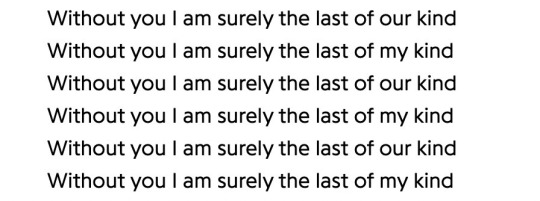


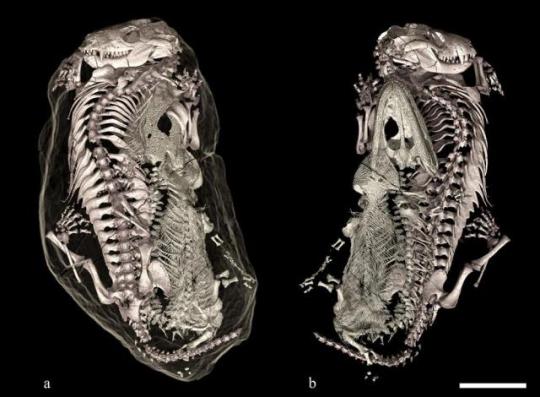




River & Loey & Adam— ʟᴜᴄʏ ᴅᴀᴄᴜs,ᴅʀᴇᴀᴍ sᴛᴀᴛᴇ...//sᴜsᴀɴ ʜᴏᴡᴇ, sɪɴɢᴜʟᴀʀɪᴛɪᴇs//ғʀᴀɴᴢ ᴋᴀғᴋᴀ, ʟᴇᴛᴛᴇʀ ᴛᴏ ᴍɪʟᴇɴᴀ//ᴛʜᴇ ᴛʀɪᴀssɪᴄ ᴄᴜᴅᴅʟᴇ//ᴇᴛʜᴇʟ ᴄᴀɪɴ, ᴛᴡᴏ ᴄʜɪʟᴅʀᴇɴ ɪɴ ᴀ ᴍᴏᴛᴇʟ ʙᴇᴅ//ɪsᴀᴀᴄ ᴍᴀʀɪᴏɴ, ᴡᴀʀᴍ ʙᴏᴅɪᴇs//ᴍᴀʙᴇʟ, ᴇᴘɪsᴏᴅᴇ 𝟸𝟾: ᴍᴀᴛʀʏᴏsʜᴋᴀ//ᴇʀɪɴ sʟᴀᴜɢʜᴛᴇʀ, ɪ ᴡɪʟʟ ᴛᴇʟʟ ᴛʜɪs sᴛᴏʀʏ ᴛᴏ ᴛʜᴇ sᴜɴ ᴜɴᴛɪʟ ʏᴏᴜ ʀᴇᴍᴇᴍʙᴇʀ ᴛʜᴀᴛ ʏᴏᴜ ᴀʀᴇ ᴛʜᴇ sᴜɴ.
477 notes
·
View notes
Text
"Haha yeah it's a great party I'm just...look, I might be being paranoid, but is it just me, or is there a lot of ominous foreshadowing to some kind of horrific event tonight? You know, lines and scenes that could become bitterly ironic in some dark future context? I dunno, I could just be imagining things but, you know?"
2K notes
·
View notes
